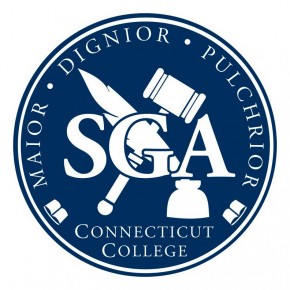Beginning in the fall of 2017, a new committee formed by the Student Government Association (SGA) began auditing clubs on campus. Two types of clubs exist on campus: affiliated student organizations (ASO) and registered student organizations (RSO). An ASO may form at any point as long as it attains 10 members and an advisor. An ASO does not receive yearly SGA funding and does not have a budget, unless it does fundraising. It is allowed to book spaces on campus, hold events, or apply for speciality funding from current Chief of Finance Amanda Yacos ’18 and her committee. RSOs, however, apply yearly for SGA funding, so the SGA Re-evaluation Committee formed to evaluate RSOs.
Vice President of SGA Yoldas Yildiz ’18 initiated the Re-evaluation Committee. He explained that his commitment to clubs inspired questions about the way clubs allocate and utilize the SGA budget. Having served on various club executive boards since his first year, Yildiz has questioned why SGA allocates funds without initiating any follow-up on club spending levels. He observes that SGA should evaluate clubs, “not in a scary way, but in a way like: so how are you using your money? What is your impact on campus?” Clubs can go through phases on campus when they go from having a lot of members to losing their popularity once leadership graduates. Club audits, Yildiz said, “[are] a way to make sure that doesn’t happen.”
Yildiz explained that clubs with prominent first-year membership should know how to continue leading clubs. As of April 13, every RSO should have completed the evaluation process. Yildiz described that after he sent emails to each club through primary contacts on ConnQuest, club leadership responded by setting up a meeting with three representatives. Each club picks its representatives, whether it is a president, treasurer, or member. The Re-evaluation Committee does not decide who attends the meeting.
Yildiz explained that beyond his presence at the meetings, RSO hearings are attended by Associate Director of Student Engagement and New Student Programs Jeannette Williams and students Samantha Kellogg-Howell ’18, Kyle Hawk ’19, and Ian Semon ’20. “That was a great way so that I don’t make all the decisions because everyone has an equal vote,” Yildiz said. “It’s kept equitable. Jeanette is there to give any information and then there are various other people to represent the finance clubs so that they know how much money they’ve gotten, and how much money they have. That’s all very private information.” As an RSO, the Voice had its own re-evaluation hearing, and notes that not all members of the group Yildiz described were in attendance; only Yildiz and Kellogg-Howell were.
According to Yildiz, each meeting was set up like a conversation. The committee asked questions ranging from what they have been doing with their funding to what events they have been hosting. To legitimize the evaluation process, Yildiz explained: “this whole process is also a huge motivation for SGA this year. As a whole, the ‘exec board’ has been more accessible to the student body. It’s also an evaluation process for SGA, because, the question I ask every single club is: how can SGA be better for you? How can we better support you? Not just financially, but in other terms.”
Yildiz explained that the feedback has been positive. Students have asked how they may collaborate with other clubs, and Yildiz offered helpful advertising through the SGA email. Marking a divergence from last year’s policy, this year, SGA has begun circulating publicity notices for any club on campus. Regarding the success of the standards set by SGA and the Committee, most clubs have exhibited acceptable activity.
“Most of the clubs are fine, as a function,” said Yildiz. SGA evaluations have mostly provided clubs with “little pointers, here and there, that they should be doing. Especially clubs, where they’re affiliated with certain departments on campus, it’s just to remind them that, ‘Hey, by the way, if you have an event, fill it out on ConnQuest so that it’s on the College calendar.’ That helps you because then it will be on the College calendar, everyone is going to be able to see it, to go to a show, a piece, or an event.” Yildiz reiterated that SGA hasn’t “really seen any major problems.”
Yildiz is currently working on changing the SGA constitution and by-laws so that the re-evaluation of clubs occurs every five years. He described that he found it ineffective to evaluate clubs every year, as clubs are going to pass on recent knowledge. After five years, the Re-evaluation Committee will evaluate maintenance of membership and student engagement. Yildiz explained that evaluation is crucial process as the popularity of certain clubs on campus waxes and wanes.
The Re-evaluation Committee meetings have raised questions about what SGA can do to assist clubs on campus. One resolution that has been discussed, but not formally proposed, would instate a Chair of Athletics, though this position would deal more with varsity sports than with club activities. Yildiz explained that the idea arose in discussion during some clubs’ meetings with the Re-evaluation Committee, which seeks to amend disconnects between clubs and SGA to further cohesive student engagement.










